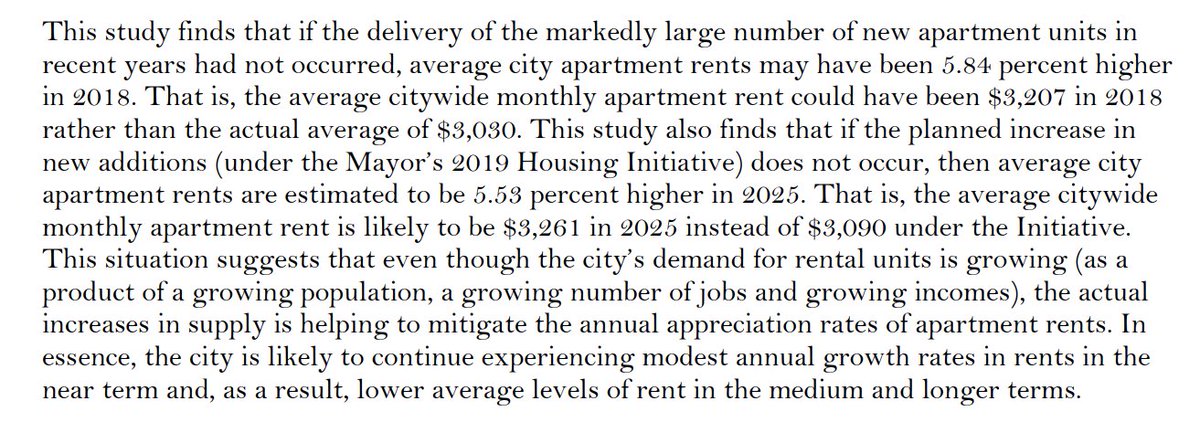A new study from a PhD student at @HowardU and economist with D.C. finds that the building spree in the city from 2000 to 2018 minimized possible rent increases. Without all the new apartments that were built, rents would have been 5.84% higher.
The study also says that if 36,000 new housing units aren& #39;t built in D.C. by 2025 as @MayorBowser is proposing, rents will increase 5.53% more than if the housing were built.
Obviously, this study (read it here: https://cfo.dc.gov/sites/default/files/dc/sites/ocfo/publication/attachments/Housing%20Supply%20Bethel%20Cole%20Smith%20April%202020.pdf)">https://cfo.dc.gov/sites/def... falls directly into the debate over whether more housing helps lower prices or if it simply makes places more attractive, thus spurring gentrification and displacement.
The study does note that building truly affordable housing requires more than just building lots of housing; targeted subsidies and the such are necessary. But it does seem to buttress the "more housing generally makes housing cheaper" argument.
This is an interesting fact: from 2000 to 2018, there was a 40% increase in the supply of apartment units in D.C., but only an 11% increase in single-family homes. That "is just one of the considerable contributors to the general unaffordability of single family home ownership."
And this seems to speak to housing costs over time: "In essence, the city is likely to continue experiencing modest annual growth rates in rents in the near term and, as a result, lower average levels of rent in the medium and longer terms." (If building continues, that is.)

 Read on Twitter
Read on Twitter


